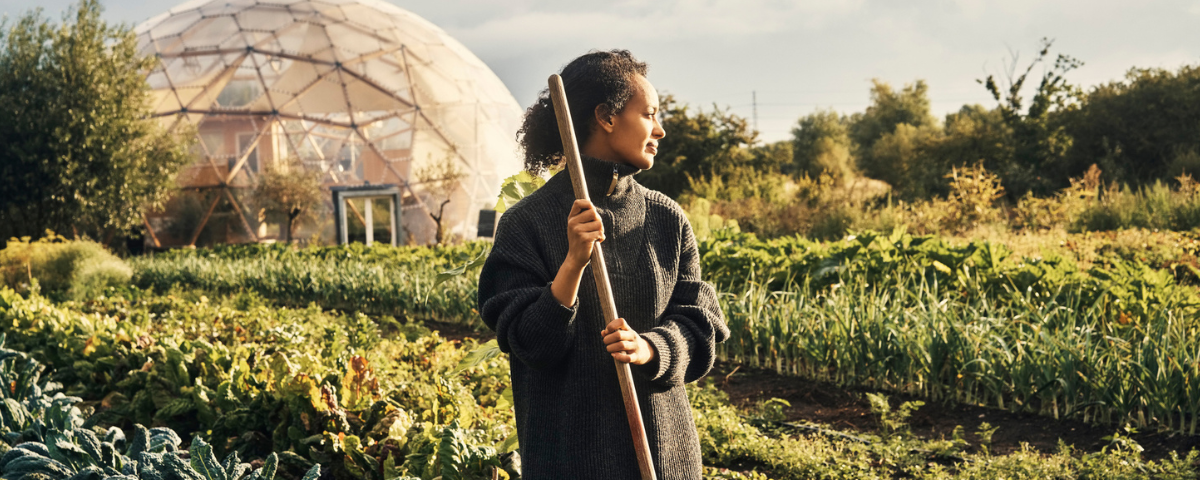All eyes are on the UAE and the wider Middle East region this month as world leaders head to Dubai for COP28. The 28th session of the Conference of the Parties (COP28) to the UNFCCC will convene from November 30 to December 12 at Expo City Dubai and will essentially mark the halfway point between the Paris Agreement and the first net zero target set – reducing emissions by 43% by 2030.
Staged under the theme Unite. Act. Deliver, COP28 aims to close the gaps to reach this goal.
Aligned to its role as COP28 host, the UAE announced 2023 as the ‘Year of Sustainability’ and throughout the year has focused on initiatives designed to inspire collective action, reinforcing its nationwide commitment to sustainable practices across every industry.
With travel and tourism a key economic driver, contributing 9% of the UAE’s total GDP in 2022, the equivalent of AED167 billion (US$45.5 billion), according to the UAE Ministry of Economy, the sector’s sustainable footprint is a key consideration.
And, with the nation prioritising start-up activity, as highlighted in my previous ATM blog, Why nurturing travel start-ups makes economic sense, there is a clear opportunity for the country to be at the forefront of positive industry change, as far as solutions to sustainability challenges in travel are concerned.
COP28 will provide platform to showcase some of the travel and tourism initiatives already in place and those planned for the future, all of which are essential to wider regional efforts to combat the effects of global climate change.
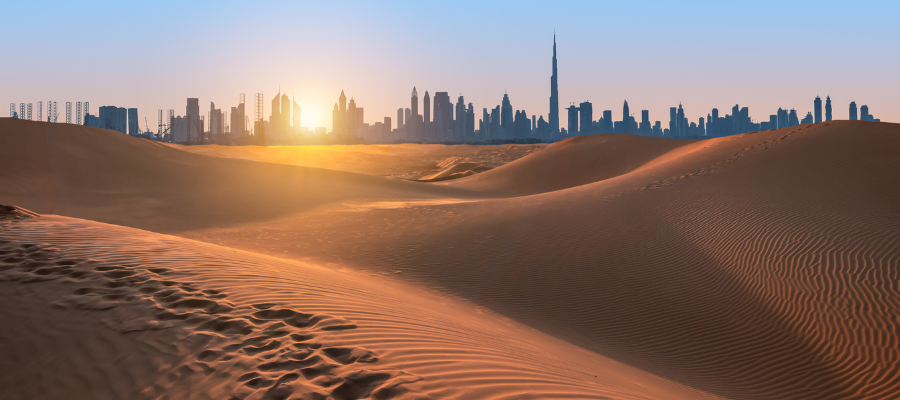
Dubai sets the benchmark
The COP28 host site, Expo City Dubai, is a prime example of how Dubai is pioneering urban destinations to visit, work and live as the city’s Chief Marcomms & Sales Officer, Sholto Douglas-Home, explains.
“No other climate conference has taken place in a venue that ‘walks the talk’ as well as we do when it comes to climate action,” he says, speaking to the WTM London Yearbook 2023 published this month. “We share similar objectives to COP and are committed to working together to identify solutions and promote action to secure a sustainable future for generations to come.”
Situated in Dubai South, Expo City Dubai builds on the cutting-edge infrastructure set up for Expo 2020, repurposing key pavilions like Alif and Terra to serve as interactive educational centres focusing on mobility and sustainability, respectively.
The city, which champions public green transportation and technologies and efficient resource management reflects the Dubai 2040 Urban Master Plan, serving as a model for what a sustainable urban future can look like. This is aligned to Dubai’s overarching Dubai Economic Agenda – D33, which aims to double the size of Dubai’s economy while helping to establish it as one of the world’s most sustainable cities.
Drilling down further into the travel sector and Dubai Economy and Tourism (DET’s) is spearheading initiatives such as Dubai Sustainable Tourism (DST) to boost sustainability in the emirate’s hotel sector. This brings together public and private sectors to focus on economic, social, and environmental sustainability with activities spanning training and certification programmes for tourism stakeholders, promoting sustainable practices to visitors, and supporting sustainable tourism infrastructure development.
Dubai is also home to a growing number of eco-tourism attractions such as the Dubai Desert Conservation Reserve, dedicated to conserving the Arabian Desert’s unique flora and fauna; the Al Marmoum Desert Conservation Reserve, which is the largest protected area in Dubai, accounting for almost 23% of the emirate’s land mass; and the Hatta Mountain Reserve, featuring an abundance of wildlife alongside hiking tracks and mountain adventure experiences.
Abu Dhabi’s sustainable aviation drive
In the UAE capital, Abu Dhabi, national carrier Etihad Airways is at the forefront of sustainability initiatives having received multiple accolades in recognition of its industry leading sustainable aviation strategy. Crowned ‘Environmental Airline of the Year 2023’ for the second year running in the annual Airline Ratings awards, the airline’s flagship sustainability projects include the Greenliner programme, using the airline’s fleet of Boeing 787 Dreamliners as flying test-beds, as well as the Sustainable50 A350-1000 launched last year.
Over the past four years, the carrier has conducted a vast number of research eco-flights demonstrating potential carbon emission savings of up to 72% on a single flight, while the Etihad Mangroves Forest project plans to establish carbon-absorbing forests in countries where the airline operates, starting in Abu Dhabi.
Etihad also became the first airline to secure commercial finance based on verified compliance with the Sustainable Development Goals of the United Nations (UN SDGs), and, in an initiative to involve its guests and corporate clients, it offers the Conscious Choices loyalty programme with rewards for customers who take environmentally positive action such as offsetting their flights.
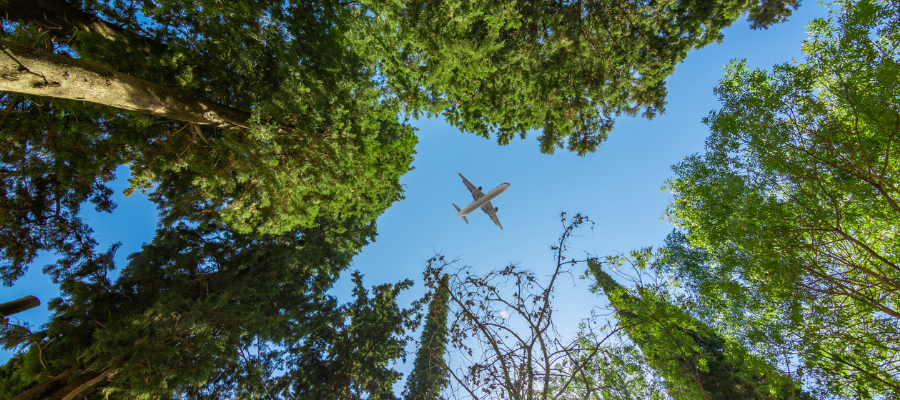
RAK’s regional EarthCheck first
At the other end of the UAE, Ras Al Khaimah was last month (October) awarded Silver Certification under EarthCheck’s Sustainable Destinations programme. It is the first destination in the Middle East to earn this level of recognition for sustainability, with EarthCheck the world’s leading scientific benchmarking and certification programme for tourism destinations.
The emirate was monitored, benchmarked and audited across 10 sustainability indicators, from energy and water consumption to waste management, carbon footprint analysis and community engagement.
Ras Al Khaimah Tourism Development Authority (RAKTDA) has also launched its own sustainability certification programme for tourism businesses, Responsible RAK, which is powered by EarthCheck’s science and data. More than 20 tourism businesses are already part of the programme and many, including hotels, attractions and tour operators, have earned Responsible RAK Silver Certification. The destination is also partnering with leading developers and operators that put sustainability at the heart of their business, and the hotly anticipated Wynn Al Marjan Island mega resort is one example. Wynn Resorts’ sustainable design and development practices have earned its buildings LEED Platinum and Four Green Globes certifications globally.
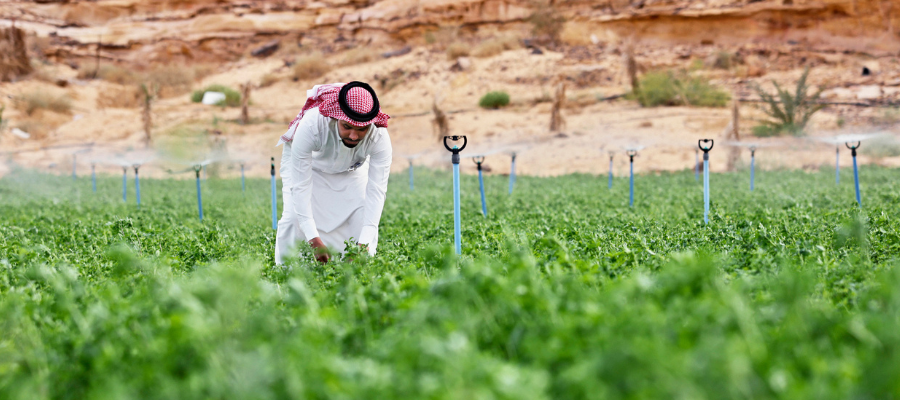
Saudi takes centre stage
Another GCC heavyweight flying the sustainable tourism flag is Saudi Arabia, with giga-projects under Vision 2030 setting new global benchmarks. The Red Sea and Amaala are being touted as world’s most ambitious luxurious regenerative tourism developments, on target to achieve net zero operations from 2030 and a 30% net conservation benefit by 2040. AlUla and Diriyah are trailblazing archaeological preservation, as well as the protection of heritage, culture and nature, and Soudah Peaks is a luxury mountain destination rooted in responsible tourism, with a masterplan based on a sustainable environmental framework. With less than 1% of the 627 sqkm Soudah Peaks landmass earmarked for development, it aligns to the goals of the Saudi Green Initiative (SGI), launched in 2021, which unifies environmental protection, energy transition, and sustainability programmes, with more than 77 initiatives activated since launch.
By 2030, Saudi Arabia aims to generate 50% of its energy from renewable sources, with a view to reaching net zero by 2060. New countrywide initiatives such as the Royal Reserves programme will protect and restore more than 260,000 sqkm of the country, the equivalent to 12% of the landmass, the same size as New Zealand.
Morocco shines a light on responsible tourism
From a MENA context, Morocco, the ‘Kingdom of Light’, continues to roll out and expand the Moroccan Chart for Responsible Tourism, demonstrating its commitment to promoting tourism that respects people and the environment and that values the cultural, identity and intangible heritage of its various regions. Wide-ranging initiatives include
preserving the precious oasis environment in the country’s deserts by encouraging the local population to combine traditional agriculture and tourism rather than opting for intensive agriculture that consumes a lot of water. His Majesty King Mohammed VI has also launched several programmes for the rehabilitation and development of the country’s ancient medinas in order to preserve the country’s national heritage for the benefit of future generations. Similar projects are in place to promote Riads while in the mountains, the tourism revenue generated has strengthened the income of families residing in rural areas. Helping to prevent a rural exodus, the revenue aims to improve the living conditions of ambitious and combative Moroccan women and introduce rural tourism encompassing experiences such as hiking, sports, yoga, cooking classes, agrotourism, fruit picking and wellness retreats.
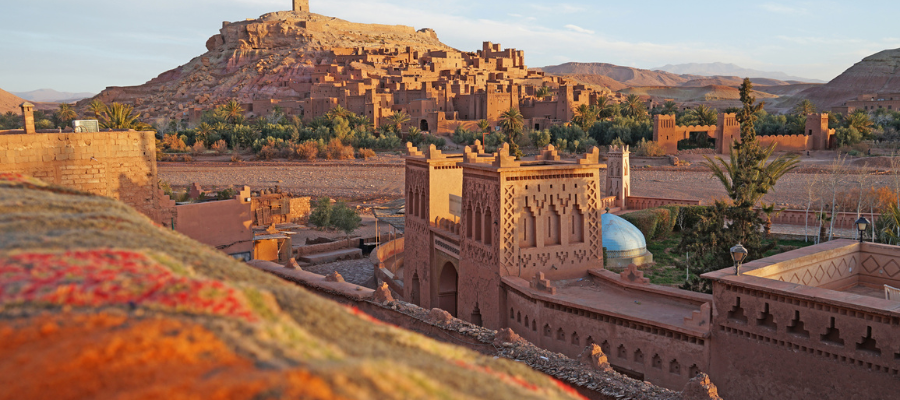
The COP28 effect
COP28not only represents a critical juncture in global climate action, but also a momentous opportunity for the UAE and wider region to showcase its leadership in climate change mitigation and sustainable development.
And, with tourism so crucial to the economic growth of many nations, the event will serve a platform to showcase the significant strides in responsible tourism policies and practices designed to protect, preserve and promote destinations and community, now and long into the future.
Ensuring the ‘visited’ benefit as much as those ‘visiting’ is the tourism development blueprint the UAE and its neighbours are championing. By hosting COP28, the region not only gets the chance to demonstrate its own progress in sustainable tourism practices but contributes to shaping international dialogue and action on climate change through industry initiatives, solidifying its role as a key influencer in the global sustainable tourism movement.
Discover more at Arabian Travel Market Dubai
The market leading travel and tourism event brings the whole world together in Dubai, UAE.
Join us from 28 Apr – 1st May at Dubai World Trade Centre.


